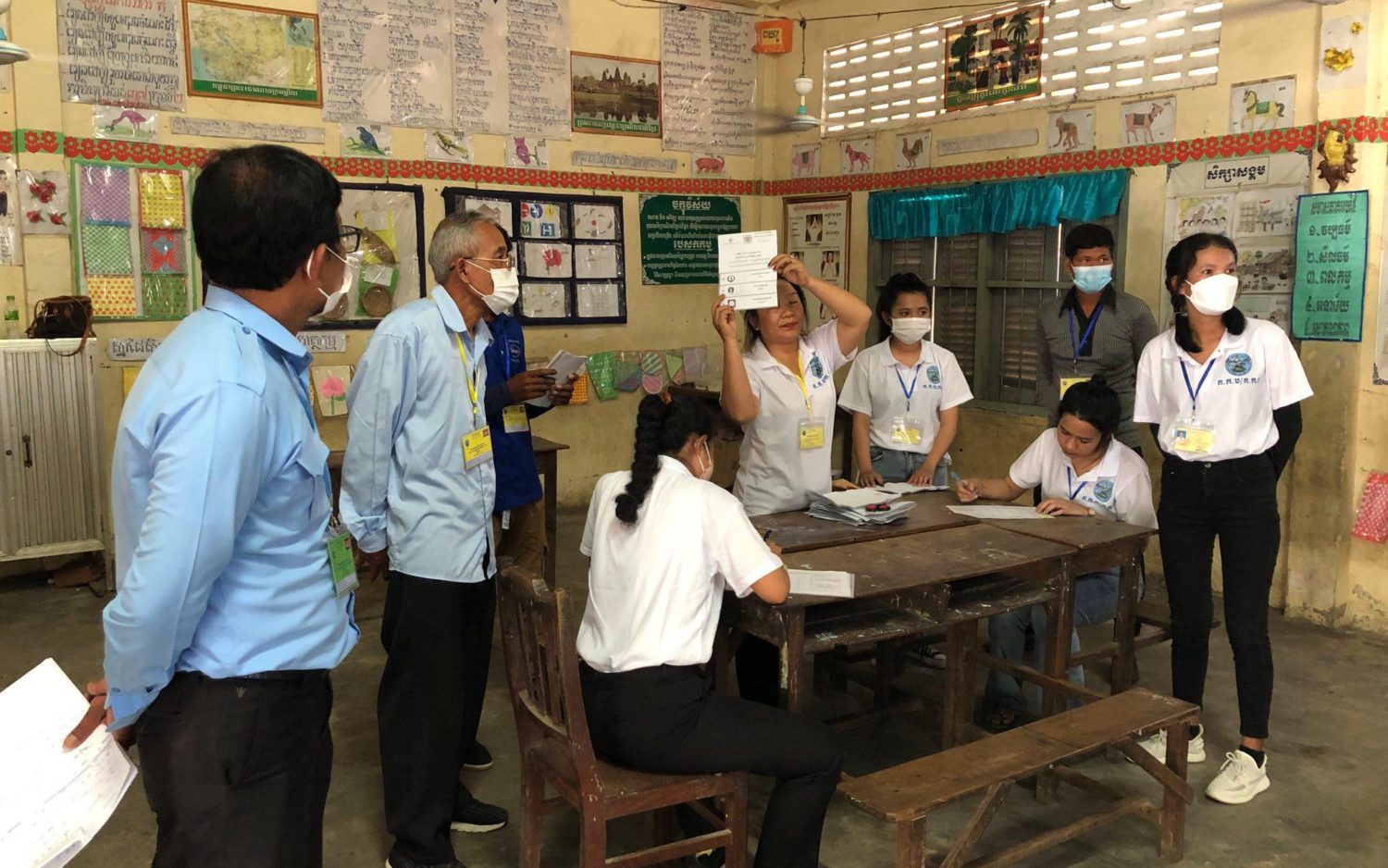Minor party leaders say voting irregularities they flagged after last year’s commune election have not been addressed by the National Election Committee, which has ignored most of their suggestions for electoral reform.
The NEC released its final regulations and procedures on Monday — spanning more than 450 pages — to ensure the upcoming national election proceeds smoothly. After reviewing some regulations — but not all — minor party officials said most of their suggestions were left out of the election body’s final draft.
The CPP dominated the commune election on June 5, winning all but four commune chief positions in the country and maintaining a strong hold on grassroots politics. Even before ballot counts were finalized in the election, some minor parties alleged polling irregularities and pushed for some amendments to the election law and improvement of the process.
However, minor party leaders who spoke to VOD struggled to explain what had changed in the regulations this year compared to previous elections, and several said they did not read all of it or had delegated the work to their members.
Ou Chanrith, the founder of Cambodia Reform Party, said last year they had submitted 17 points to the NEC for electoral reform.
They wanted to change the way officials for the Commune Election Committees and Provincial Election Committees are selected. They also wanted more seats in single-seat provinces, such as in Ratanakiri, Preah Vihear and Oddar Meanchey, as well as to create special polling centers for overseas voters — both of which are likely outside the ambit of the election procedures code.
Minor parties also requested a review of the law that allows the dissolution of political parties, adding this has an impact on people’s willingness to vote, he said. This would require a change to the Law on Political Parties.
Voters, especially potential opposition voters, might also be dissuaded by the presence of village chiefs, commune chiefs and armed forces at polling stations, Chanrath added, so parties urged the NEC to review this regulation as well.
Chanrath admitted he had not read the whole text of the new NEC procedures, but after a cursory read he had not seen any of these changes, adding it would be hard for minor parties to compete.
“I think we have no options. We have no options for participating [in the election],” he said.
NEC released a 337-page first draft of its regulations in November, giving parties two and a half weeks to review it and file complaints, though opposition parties said they didn’t have enough time to read through.
In addition to the joint request for election reforms, the Candlelight Party submitted 15 of its own requests for changes but none of them made it into this final draft, said deputy president Cheb Kim Eang.
“The NEC seems not to agree with our requests,” said Kim Eang, who has handled election concerns for the minor party.
Yem Ponhearith, the new deputy president of Khmer National United Party, also expressed disappointment after the three requests his party made were ignored.
“We want to have an election under a better [environment] …in a democracy that’s free and fair with transparency,” Ponhearith said.
Som Sorida, spokesperson for NEC, said the NEC could only accept a few of the requests sent in because most were “not following legal principles” of the election.
The NEC received recommendations from five political parties and five NGOs, as well as the National Assembly, Senate, Council of the Constitution, and the Interior and Defense ministries.
One of the most common complaints by minor parties involved Form 1102 which is a document drafted at a polling station to ballot counts. The parties want polling officers to give the parties a copy of the form so they can check all the voting information on it.
The NEC instead says it is required to have three copies of the form: one is locked inside the ballot box, a second is posted outside the polling station, and a third is sent to the Commune Election Committee office. The NEC also uploads a copy of the form to the official results website.
Kim Eang, from the Candlelight Party, urged the NEC to reconsider its decision and share a copy of the form with poll observers.
“It clarifies the real transparency and is evidence” that the results are untampered and valid, he said.
Korn Savang, a coordinator at election watchdog Comfrel, said he regretted that this practice was discontinued by the NEC.
“The result is important that parties need to have [the election report] because they want to know. If it’s missing, …it causes suspicion among participating parties. So the NEC should look into this point,” he said.
According to Savang, some polling places never posted form outside the polling station after ballots were counted.
Sorida, the NEC official, rejected these concerns, adding that the decision to make more copies of the same form could lead to mistakes or miscommunications about the results.
Sorida added that the observing party agents are supposed to sign off on Form 1102 before it is submitted into the ballot box or sent to the local election committees, so they can raise concerns before signing the results.
Addressing Chanrith’s concerns, Soriada said village chiefs, commune chiefs and police officials have the right to vote and therefore can be outside the polling stations, as long as they are not blocking voters from the polls. The NEC also has separate guidelines for officials, he added.
Sorida said that some of the minor parties’ concerns were outside the scope of the NEC’s work and not related to election procedures.
“In general, we accept [their requests] but most of the points we cannot accept because the requests were not in line with the legal principles,” he said.












